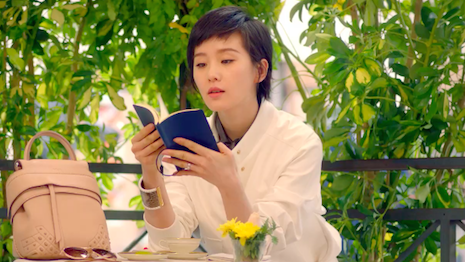- About
- Subscribe Now
- New York,
September 14, 2018

 Tod's has outperformed expectations. Image credit: Tod's
Tod's has outperformed expectations. Image credit: Tod's
Luxury investors still fear a possible trade war between the United States and China in spite of a positive first half to the year.
Kering, Tapestry and Tiffany & Co. were among the companies that have seen strong results in 2018, but London’s Savigny Partners finds that uncertainty remains as luxury brands continue investing in the Chinese market. Its global luxury index rebounded slightly in August but has not recovered from its losses at the beginning of the summer.
Ups and downs
While upwards growth continues for luxury brands, a closer examination at some companies' results reveals more nuances.
Italian fashion brand Tod’s outperformed its own expectations and finished the month of August with stock prices up almost 10 percent. Shares for fashion label Michael Kors rose 9 percent in August, hitting a three-and-a-half year high.
The Savigny Luxury Index was up 1.5 percent. Image credit: Savigny Partners
U.S. fashion group Tapestry ended August with shares up almost 8 percent.
For the 2018 fiscal year, the group’s gross profit reached $3.85 billion, with margins of 65.5 percent. Along with revenue increases thanks to the addition of Kate Spade to its portfolio, the group also saw organic growth in the period ended June 30 (see story).
The Tiffany Paper Flowers collection is premiering on China's Luxury Pavilion. Image credit: Alibaba
While jeweler Tiffany & Co. exceeded expectations in the second quarter, its stock lost 11 percent in August, partially over concerns of costs associated with its flagship renovations. Nonetheless, Tiffany’s management has announced an increase to the company’s expected outlook for the rest of the year thanks to a healthy first half and second quarter, which ended on July 31 (see story).
Tensions and investments
The last few months have seen relationships between the U.S. and China deteriorate.
In August, it was announced that officials from the two countries were to meet to discuss the contentious trade negotiations between the two countries for the first time in months, continuing to negotiate tariffs that could have a major impact on two of the largest luxury-consuming nations in the world.
The discussion comes amid tense talks that have gone on between the two countries, exacerbated by comments from President Donald Trump predicting that there would be little progress from the meeting. Representatives of groups such as the National Retail Federation have condemned the harsh tariffs placed on China and the ensuing trade war, stating that it is bad for business and for consumers (see story).
Nonetheless, these concerns have not stopped luxury brands from investing in China — especially to attract the loyalty and spending of Chinese millennials.
For instance, Tiffany is debuting chief artistic officer Reed Krakoff’s first jewelry line exclusively on Tmall’s Luxury Pavilion.
Ahead of the Tiffany Paper Flowers collection’s premiere in bricks-and-mortar stores, consumers on the invite-only Luxury Pavilion platform will be able to shop platinum and diamond jewels online. This is one piece of Tiffany's millennial-friendly push for Paper Flowers, as it seeks the next generation of luxury consumers (see story).
Chinese social media apps are also an important way for luxury brands to reach younger affluents.
In August, fashion label Michael Kors launched its first full store on popular Chinese social media application WeChat in an effort to reach more Chinese consumers.
The boutique functions as a kind of mini-app within the larger WeChat platform. Using this model, Michael Kors is one of the first luxury brands to have its own full-fledged store with complete control on one of the most widely used social media platforms in China (see story).
Tod’s also partnered with WeChat and influencer Mr. Bags for a new digital pop-up shop.
The pop-up combines editorial content with shopping, allowing customers to learn more about the products and their creation before making the purchase directly through WeChat. The collaboration emphasizes not only the importance of ecommerce but also the continued crossover between European luxury and China (see story).
Share your thoughts. Click here